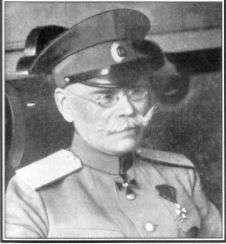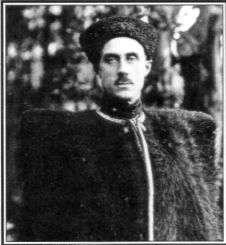A People's Tragedy (119 page)
Read A People's Tragedy Online
Authors: Orlando Figes

The counter-revolutionary armies of the south were now under the command of men committed to a national campaign. During the following spring they were to break out of their Cossack homelands and occupy south Russia, most of the Ukraine and even threaten Moscow itself. In the process their forces were to grow and develop into a mass conscript army dependent on the recruitment of the peasantry. This was the root of their ultimate downfall: their neglect of politics had not prepared them for the tasks that now confronted them in ruling these newly conquered territories.
ii The Ghost of the Constituent Assembly
By comparison with the bread-starved cities of the Bolshevik north, the Volga city of Samara was a gourmand's delight. Peasant carts laden down with bags of flour and carcasses of meat, milk and vegetables trundled daily into its busy market. Food was plentiful and it showed in the rosy cheeks of the city's residents.
Merchants grew fat on the booming trade: they dressed in the finery and jewels that had once belonged to the well-to-do of Petrograd and Moscow. Even the horses looked well fed.
Thousands of so-called 'former people' fled to the Volga city. Among the refugees were the remnants of the shattered Right SRs, seeking a new provincial base after their defeat in Petrograd and Moscow. The Volga region was a stronghold of their party. Its peasant population had voted overwhelmingly for it in the elections to the Constituent Assembly. The SR leaders naturally assumed the people of the Volga would rally behind their struggle against the Leninist dictatorship. If the Bolshevik drive to power had been based on the hunger of the urban masses, then the restoration of the democracy would depend on the well-fed peasantry. Bread and liberty went together.
But the Right SRs were soon to be disillusioned by their pilgrimage to the provinces.
Their local party organizations were in total disarray. With the return of the peasant soldiers, many of them radicalized by the army, the Volga Soviets had swung to the far left. Soviet power had taken root in the villages as a system of local self-rule, the Constituent Assembly was now a remote parliament. The peasants had greeted its closure by the Bolsheviks with a deafening silence. It was hardly the outburst of popular indignation the SRs had expected. 'Unless', declared Klimushkin, one of the SR leaders in Samara, at the start of May, 'there is a spur from the outside in the near future, we can give up all hopes of a
coup d'etat.'27
By one of those curious accidents of history, that spur came at the end of the same month in 1918 when a legion of Czech soldiers became embroiled in a conflict with the Soviets along the Trans-Siberian Railway. The Czech Legion had been formed by Czech nationalists working inside Russia after the outbreak of the First World War.
During the war it was enlarged by Czech and Slovak prisoners of war and deserters from the Austrian army, and by 1917 it was a force of some 35,000, most of them students and officers. As nationalists fighting for independence from the Austro-Hungarian Empire, they had sided with the Russians against the Central Powers.
Thomas Masaryk and Eduard Benes, the Czech Nationalist leaders, had agreed to the Legion's formation as an independent corps of the Russian army on the South-Western Front. After the Treaty of Brest-Litovsk the Legion resolved to continue its struggle as part of the Czech army fighting in France. Rather than run the risk of crossing enemy lines, they decided to travel eastwards, right around the world, reaching Europe via Vladivostok and the United States. On 26 March an agreement was made with the Soviet authorities at Penza, whereby the Czechs were allowed to travel on the Trans-Siberian Railway as 'free citizens' with a 'specified number of weapons for self-defence'.
Had this agreement been adhered to by both sides, the civil war would have taken a very different course. But the passage of the Czechs was marked by increasing mistrust and tension. The trains were held up by the local Soviets, which barraged the Czechs with propaganda and tried to confiscate their weapons. The Czechs, in turn, became suspicious that the Bolsheviks were preparing to hand them over to the Germans — a suspicion increased by the order from Moscow in April for half the Legion to turn around and be evacuated through Arkhangelsk (the irony was that, unknown to the Czechs, the order had been given at the behest of the Allies). The Czechs resolved to fight their way, if necessary, through Siberia to Vladivostok. Events came to a head on 14 May, when the Cheliabinsk Soviet in the Urals arrested some Czechs who had been involved in a brawl with a group of Hungarian prisoners of war. The Czech soldiers occupied the town, released their comrades and disarmed the small Red Guard unit.
Moscow ordered the local Soviets to disarm the Czechs in turn. 'Every armed Czech found on the railway', read Trotsky's telegram of the 25th, 'is to be shot on the spot.'28 It amounted to a declaration of war on the Czechs, and its effect was only to increase their determination to fight their way through to the East. This was a shame from the Bolsheviks' viewpoint, for there had been no real need to alienate the Czechs, and it was in everyone's interests to get them out of Russia as soon as possible. Trotsky's overreaction to the Cheliabinsk incident created a hostile army in the heart of Soviet Russia.
The Czech Legion, broken up into six groups along the entire length of the Trans-Siberian Railway, captured one town after another: Novo-Niko-laesvk on 26 May; Penza and Syzran on the 28th and the 29th; Tomsk on the 31st; Omsk on 6 June; and Vladivostok on the 29th. The Red Army was still not properly organized, and the untrained and ill-disciplined Red Guards, made up of workers from the local towns, who often ran away at the first sign of danger, were no match for the well-trained Czechs.
This was the case with the capture of Samara on 8 June. With the Czechs in the nearby city of Penza, the underground SR leaders in Samara approached them with a request to help them overthrow Soviet power in the Volga capital. This was in contravention of the policy of the Right SRs (passed at the Eighth SR Party Assembly in May) that foreign troops should not be involved in the 'people's struggle' against Bolshevism. But the SR
leaders in Samara managed to convince themselves — as did the Czechs themselves, who had declared their own pious intention not to get involved in the Russian civil war
— that an intervention could be justified in this case. Their aim of continuing the war against Germany depended on removing the Bolsheviks from power. Certainly, the Allies, seeing how easy was the Legion's victory in Siberia, were coming round to the idea of using the Czechs against the Bolsheviks. Later that summer they would send them aid. Meanwhile, it was the SRs' alleged
connections with the French Government — grossly exaggerated, as it turned out —
that finally persuaded the Czechs to help them in Samara. The Volga city was in a strike-ridden state of chaos after an uprising by the unruly garrison in the middle of May. The Soviet could muster only 2,000 Red Guards, most of them Latvian workers evacuated during the war, out of a population of 200,000. Such was the ephemeral nature of Bolshevik power in the provincial towns. The Red Guards stood little chance against the 8,000 well-armed Czechs — and most of them ran away as soon as the Legion approached. A mere six Czechs and thirty Red Guards were killed in the 'Battle of Samara'.29
The new government took its name and legitimacy from the Constituent Assembly. The Committee of Members of the Constituent Assembly — or Komuch — saw itself as the All-Russian Parliament in provincial exile. It called on all the members of the disbanded Assembly, with the exception of the Bolsheviks of course, to join it. Its five founding members were all SR members of the Constituent Assembly, three of them from Samara itself. By the end of its four-month reign, the ranks of the Komuch had been swelled by 100 members of the dissolved parliament, including Viktor Chernov, the chairman of its one and only session on 5—6 January 1918. This 'leader of the democracy' was treated as a VIP, with an armed guard outside his suite in the National Hotel and a series of banquets arranged in his honour. It was hoped he would become the figurehead of a national crusade.
The Komuch was basically an SR government with the addition of a few representatives from the national minorities (mainly the Tatars and Bashkirs, both quite numerous in the Volga region) and Mensheviks and Kadets who joined it in defiance of their respective Central Committees. Most of the leading Right SRs came to this Citadel of Liberty,
including
Zenzinov,
Avksentiev
and
Breshko-Breshkovskaya,
the


'Grandmother of the Revolution'. It was in many ways a resurrection of Kerensky's government — except that Kerensky himself was by this time in exile in Paris. The Komuch was a ghostly laboratory testing the central principle upon which the Provisional Government had stood and fallen: the idea that the provinces were not ready for Socialism and that the revolution should therefore not go beyond the democratic stage. This was the theoretical obsession which had prevented the SRs and the Mensheviks from establishing Soviet power in 1917; and it would now form the basis of their equally deluded effort to rally the provinces against the Bolsheviks.
'There can be no question of any kind of socialist experiments,' proclaimed the Samara press. The essence of the Komuch was the restoration of democracy, which meant postponing the social revolution until after the reconvocation of the Constituent Assembly, which alone could decide social questions. Like the Provisional Government, the Komuch saw itself as a temporary administration pending the re-establishment of parliamentary rule. All its
THE CIVIL WAR
65 General Alexeev - the last chief of staff in the imperial army and, along with Kornilov, the founder of the White movement in south Russia.


66 General Denikin - leader of the White armed forces in south Russia between 1918
and 1920.
Admiral Kolchak - the main White leader in east Russia and, thanks to his connections with the Allies, the nominal head of the whole White movement.
68 Baron Wrangel, who led the last White campaign in the Crimea during 1920.
